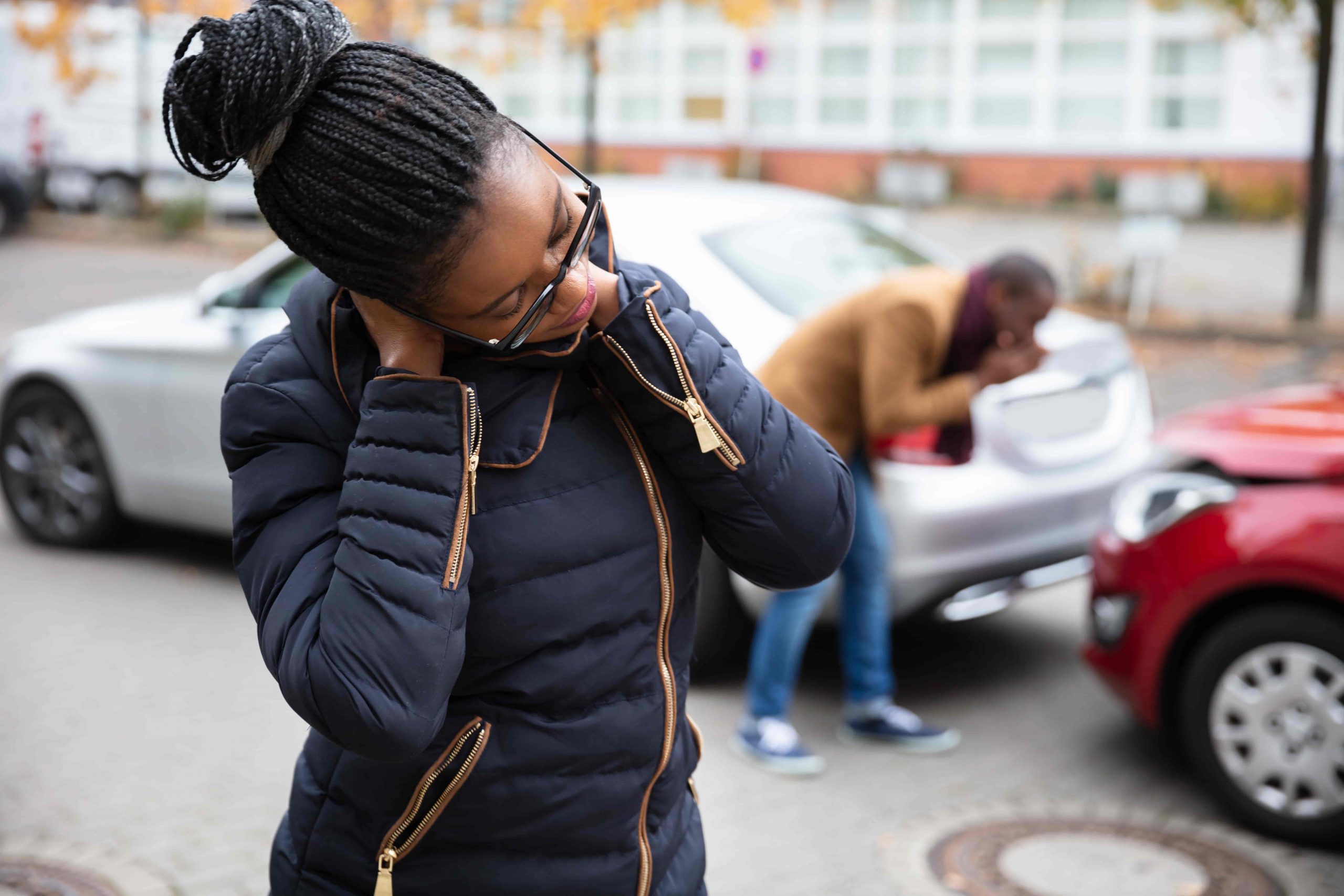In Florida, there’s no limit on how much you can sue for a car accident, provided you have evidence supporting your claim. Factors like injury severity, insurance coverage, and comparative negligence influence settlement amounts.
Florida Car Accident Laws
If you’ve been involved in a car accident in Florida, you may wonder how much you can sue for. The answer is simple: Florida does not impose a cap on car accident lawsuit amounts. However, the amount you can actually recover depends on several key factors, including the severity of your injuries, medical expenses, lost wages, and the at-fault party’s insurance coverage.
What to Expect in This Guide
This article will walk you through the factors that influence car accident settlements in Florida, including:
- How damages are calculated, including pain and suffering
- Average settlement amounts for car accidents in Florida
- The impact of Florida’s 51% rule and how it affects your claim
- Legal considerations, including filing deadlines and insurance negotiations
By the end, you’ll understand how Florida law impacts your ability to seek fair compensation and how to maximize your claim.
Factors Affecting Car Accident Settlements in Florida.

We’ll break down key elements like:
- Severity of Injuries – How medical expenses and long-term effects impact payouts
- Insurance Policy Limits – Why coverage caps affect total compensation
- Liability & Comparative Negligence – How shared fault can reduce settlement amounts
- Economic vs. Non-Economic Damages – Differences between tangible costs (medical bills, lost wages) and intangible losses (pain & suffering)
Factors Affecting Car Accident Settlement Amounts in Florida
When pursuing compensation for a car accident in Florida, several key factors influence the settlement amount you may receive. These elements can help you set realistic expectations and build a strong case.
1. Injury Severity: The Bigger the Impact, the Higher the Payout

Insurance companies and courts assess injury severity when determining settlement amounts. More serious injuries typically lead to larger settlements due to:
- High medical costs – Emergency care, surgeries, physical therapy, and ongoing treatment.
- Long-term disability – If the injury leads to chronic pain, mobility issues, or permanent impairment.
- Lost wages and future earning capacity – Severe injuries can prevent victims from working temporarily or permanently.
A minor whiplash injury will likely result in a lower settlement than a traumatic brain injury (TBI) or spinal cord damage. The more life-altering the injury, the more compensation you may be entitled to.
2. Insurance Coverage: Policy Limits Can Cap Settlements
Florida follows a no-fault insurance system, meaning drivers must carry Personal Injury Protection (PIP), which covers medical expenses up to $10,000, regardless of fault. However, if damages exceed this amount, victims may pursue additional compensation from the at-fault party’s insurance.
The at-fault driver’s liability insurance plays a significant role in how much you can recover. If their policy limit is $50,000, but your damages total $100,000, you may struggle to receive the full amount unless you:
- File a claim under your uninsured/underinsured motorist coverage (UM/UIM)
- Sue the at-fault party personally (though collecting may be difficult if they lack assets)
3. Comparative Negligence: How Shared Fault Affects Your Claim
Florida operates under a modified comparative negligence rule. Under this law, if you are 51% or more at fault, you cannot recover any damages. If you are less than 51% at fault, your settlement is reduced by your percentage of fault.
For example:
- If you are 20% at fault for an accident and win a $100,000 settlement, you would receive $80,000 after the deduction.
- If you are 55% at fault, you would receive nothing due to the 51% threshold.
This makes strong legal representation and evidence collection critical to proving liability.
4. Evidence and Documentation: The Foundation of a Strong Case
The more solid your evidence, the higher the chances of receiving a fair settlement. Insurance companies rely heavily on documentation to evaluate claims. Evidence includes:
- Medical records – Doctor’s diagnoses, treatment plans, and long-term care estimates.
- Accident reports – Official police documentation detailing fault and damages.
- Photographs and videos – Scene evidence, vehicle damage, and visible injuries.
- Witness statements – Testimonies from people who saw the accident unfold.
- Expert opinions – Accident reconstruction specialists or medical professionals to validate your claims.
Without strong documentation, insurance companies may downplay injuries or dispute liability, leading to a lower payout.
Get the Right Legal Help to Maximize Your Settlement

Insurance companies often try to minimize payouts. If you’ve been injured in a Florida car accident, Applebaum Accident Group can connect you with the right attorneys who will fight for the maximum compensation you deserve.
Calculating Pain and Suffering in a Florida Car Accident Case
When you file a claim after a car accident, compensation isn’t just about medical bills and lost wages. Victims are also entitled to pain and suffering damages, which cover the physical and emotional impact of an injury. Unlike economic damages, pain and suffering don’t have a fixed dollar amount, making calculation methods necessary.
1. The Multiplier Method: A Common Formula for Non-Economic Damages
One of the most widely used ways to calculate pain and suffering is the multiplier method. This approach takes your total economic damages (medical bills, lost income, etc.) and multiplies them by a number, typically between 1.5 and 5, based on injury severity.
Formula:
Pain and Suffering = Economic Damages × Multiplier
Example:
- Medical expenses and lost wages: $50,000
- Injury severity: Moderate to severe (multiplier of 3)
- Total pain and suffering: $150,000
- Final settlement: $50,000 (economic damages) + $150,000 (pain and suffering) = $200,000
How is the multiplier determined?
- 1.5 – 2: Minor injuries that heal quickly (sprains, mild whiplash).
- 3 – 4: Moderate injuries with long recovery periods (fractures, concussions).
- 5+: Severe injuries with lifelong consequences (traumatic brain injuries, paralysis).
2. How Pain and Suffering Impacts Daily Life
The court or insurance company also considers how an injury disrupts daily activities and overall quality of life. Some key factors include:
- Physical limitations – Can you walk, drive, or perform household tasks?
- Chronic pain – Does the injury cause ongoing discomfort or require pain management?
- Emotional distress – Anxiety, depression, PTSD, or sleep disturbances caused by the accident.
- Loss of enjoyment – Inability to participate in hobbies, exercise, or social activities.
- Impact on relationships – Strained family dynamics or difficulty maintaining employment.
For example, if a victim once enjoyed playing sports but now experiences constant knee pain, their pain and suffering claim would be higher than someone who recovers fully.
Maximizing Your Pain and Suffering Claim
Since there’s no set formula for pain and suffering, you must have strong documentation. This includes:
- Medical records showing long-term treatment needs.
- Personal journals describing daily pain and emotional struggles.
- Therapist reports if you experience anxiety, depression, or PTSD.
- Testimony from family and friends about how your life has changed.
Average Car Accident Settlements in Florida
Car accident settlements in Florida vary widely depending on factors like injury severity, liability, and available insurance coverage. While minor accidents may result in settlements of only a few thousand dollars, severe injuries can lead to payouts exceeding $100,000 or more.
1. Settlement Ranges Based on Injury Severity
Minor Injuries (Whiplash, Soft Tissue Damage, Minor Cuts & Bruises)
- Settlement Range: $3,000 – $15,000
- Example: A driver suffers mild whiplash and a sprained wrist after a rear-end collision. Their medical bills total $4,500, and they miss one week of work. The final settlement, including pain and suffering, is $12,000.
Moderate Injuries (Fractures, Concussions, Torn Ligaments)
- Settlement Range: $20,000 – $75,000
- Example: A pedestrian is hit by a distracted driver, suffering a broken leg and a concussion. Their medical expenses total $25,000, and they require months of physical therapy. The case settles for $60,000.
Severe Injuries (Spinal Cord Damage, Traumatic Brain Injuries, Permanent Disability)
- Settlement Range: $100,000 – $1,000,000+
- Example: A motorcyclist is hit by a drunk driver, suffering a spinal cord injury that results in permanent mobility issues. Their lifetime medical expenses exceed $300,000, and they can no longer work. Their final settlement, including pain and suffering, reaches $750,000.
2. Real-Life Car Accident Settlements in Florida
$2,500,000 – Pedestrian struck by an impaired driver, resulting in life-altering injuries.
$500,000 – Young driver rear-ended by a delivery truck, requiring neck surgery.$250,000 – Driver hit from behind, suffering a shoulder injury requiring surgery.
These examples highlight the wide range of potential settlements, which depend on the circumstances of each case.
How to Maximize Your Car Accident Settlement
To increase your chances of a higher settlement, strong evidence and legal representation are key. Insurance companies often try to lowball victims, so having an attorney ensures you get the compensation you deserve.
Applebaum Accident Group connects you with top attorneys who fight for maximum payouts. Call today for a free consultation!
Florida’s 51% Rule and Other Car Accident Laws
Florida has several key laws that impact how much compensation you can recover after a car accident.
1.How Comparative Negligence Affects Your Claim
✅ You can recover damages only if you are 50% or less at fault for the accident.
❌ If you are 51% or more at fault, you cannot recover any compensation.
Example:
- If you are 20% at fault for an accident and your total damages are $100,000, your payout would be reduced to $80,000.
- If you are found 51% at fault, you would receive nothing.
This rule makes proving liability a critical factor in securing a fair settlement.
2. Florida’s No-Fault Insurance System: What PIP Covers and Its Limitations
Florida requires all drivers to carry Personal Injury Protection (PIP) insurance, which covers up to $10,000 in medical expenses and lost wages—regardless of who caused the crash.
However, PIP has limitations:
🚫 Only covers 80% of medical bills – If you have $5,000 in medical expenses, PIP will only pay $4,000.
🚫 Does not cover pain and suffering – PIP only covers economic losses.
🚫 Caps at $10,000 – If your damages exceed this, you must pursue compensation from the at-fault driver.
To step outside of the no-fault system and file a lawsuit, you must have serious injuries, such as:
- Permanent disability
- Significant scarring or disfigurement
- Loss of a bodily function
3. Florida’s Statute of Limitations: Don’t Miss the Deadline to File a Lawsuit
- You must file a lawsuit within two years from the accident date.
- If a loved one was killed in a crash, wrongful death claims also have a two-year deadline.
Failing to file within this window bars you from recovering compensation—no exceptions.
How Does the 14-Day Rule Affect My Claim?
Florida law requires accident victims to seek medical treatment within 14 days to qualify for Personal Injury Protection (PIP) benefits. If you fail to see a doctor within this timeframe, your PIP insurance will not cover medical expenses, making it much harder to receive compensation.
Best practice: Even if you feel fine, see a doctor immediately after an accident. Some injuries, like whiplash or internal trauma, may not show symptoms right away.
Related article: Florida 14-Day Accident Rule
Can You Sue for Emotional Distress Without a Physical Injury?
In most cases, Florida law requires a physical injury to claim pain and suffering damages. However, if the emotional distress is severe—such as PTSD from witnessing a traumatic crash—you may have a case.
If you’re struggling with anxiety, depression, or PTSD after an accident, document your emotional distress and speak with an attorney about your options.
Fear of Not Receiving Fair Compensation
Insurance companies often offer low settlements to protect their profits. They may:
- Downplay the severity of injuries
- Dispute liability
- Pressure victims into accepting quick, lowball offers
Solution: Work with an experienced attorney who understands Florida’s car accident laws and fights for maximum compensation.
Uncertainty About the Legal Process
Many accident victims worry about the complexity of filing a claim or lawsuit. They want to know:
- How long does a case take? (Some settle in weeks, others take months or years if they go to court.)
- Will I have to testify? (Most cases settle out of court, but if necessary, your attorney will guide you.)
- How do I prove damages? (Medical records, accident reports, and witness statements strengthen your case.)
Solution: Having an attorney handle the legal process allows you to focus on recovery while they deal with negotiations, paperwork, and court filings.
Financial Burden During the Claims Process
After an accident, many people worry about medical bills, lost wages, and out-of-pocket expenses while waiting for a settlement.
Solution: Many personal injury attorneys work on a contingency fee basis, meaning you pay nothing upfront—legal fees only come from the final settlement.
What to Do Next After a Car Accident in Florida
Professional help can allow you to navigate your car accident claim with confidence. Here’s a quick recap of the key takeaways:
No Cap on Settlements – You can sue for any amount in Florida, but it must be backed by evidence.
Injury Severity Matters – The more serious the injury, the higher the potential settlement.
Comparative Negligence Rule – If you’re 51% or more at fault, you can’t recover damages.
PIP Insurance Limitations – You must seek medical attention within 14 days to qualify for benefits.
Pain and Suffering Calculation – Using the multiplier method, non-economic damages can significantly increase your payout.
While these insights provide a strong foundation, every car accident case is unique. Insurance companies often downplay injuries and dispute claims to pay out as little as possible. Without expert legal guidance, you could end up settling for far less than you deserve.
Talk to a Legal Professional Today
Navigating a car accident claim in Florida can be overwhelming, but you don’t have to do it alone. Applebaum Accident Group connects you with top attorneys who understand the complexities of Florida’s laws and fight for maximum compensation.
📞 855-225-5728 Call for a free consultation and protect your rights! Whatever the reason, you don’t have to face it alone.
Contact Applebaum Accident Group NOW and we’ll put you in touch with the best lawyers.
✅ Access to Florida’s Best Attorneys: We work with a network of highly skilled personal injury lawyers who specialize in car accident cases. These attorneys have a proven track record of securing maximum compensation for their clients, whether through settlements or courtroom victories.
✅ Free, No-Obligation Case Evaluation: Not sure if you need a lawyer? We’ll arrange a free consultation with an experienced attorney who will review your case and provide expert advice – with no pressure or commitment.
✅ Personalized Lawyer Matching: Every accident is different, and so is every legal case. We match you with an attorney who understands the details of your accident, injuries, and financial concerns, ensuring the best legal strategy for your situation.
✅ Fast, Hassle-Free Process: Don’t waste hours researching law firms. We do the work for you, finding trusted, experienced attorneys so you can focus on your recovery.
Take the First Step Toward Justice
If you’ve been injured in a car accident, don’t wait to seek legal help. Call Applebaum Accident Group today, and we’ll connect you with the right attorney to fight for your rights.
📞 855-225-5728 | Request Your Free Consultation Now
With Applebaum Accident Group, you get support, expertise, and access to Florida’s best attorneys – without the stress. Let us help you find the legal representation you deserve.





